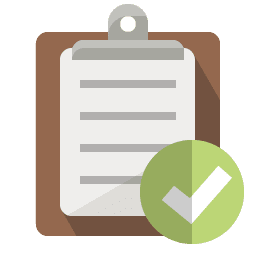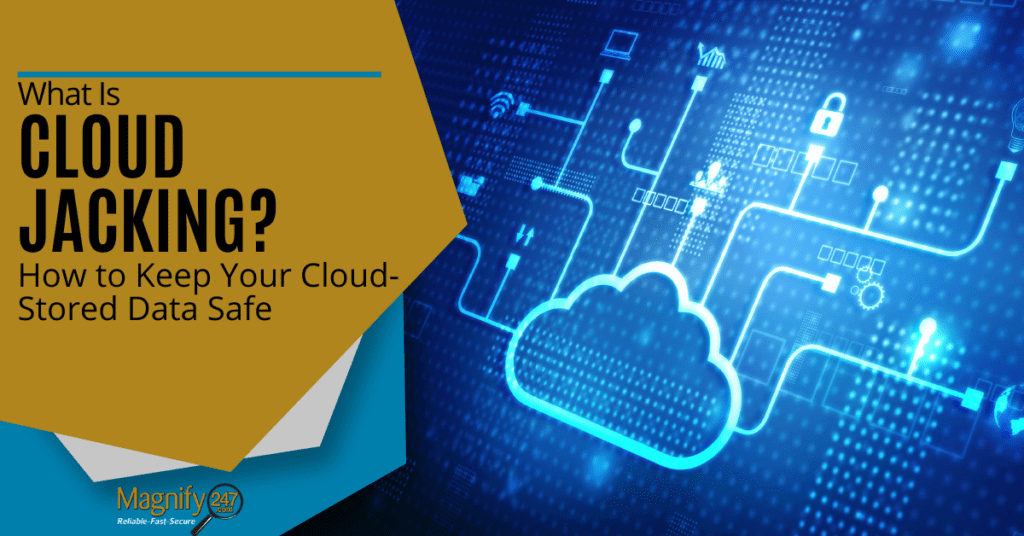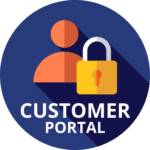The transition to the cloud for most business and personal data is nearly complete for many. While some people may still keep a few file copies here and there on a hard drive, increasingly, most data is being stored in cloud applications and cloud storage (Dropbox, OneDrive, etc.).
watch short video > https://youtu.be/H5SuitjgHZg
This year, the adoption of Platform as a Service (PaaS) systems like Microsoft 365 and Google Workspace is expected to rise to 56%. The pandemic accelerated an already rapid move to cloud use, with 50% of people estimating their cloud use was higher than anticipated because of COVID.
As more data and sensitive information are being kept in the cloud, the security risk of cloud jacking is something we all need to be aware of and protect against.
What is Cloud Jacking?
Cloud jacking, also known as cloud hijacking, is when a hacker compromises or takes over a company’s cloud account. For example, if a cybercriminal can breach a user’s password to a Microsoft 365 account, they can gain access to company files, shared cloud storage, have the ability to send emails on the company domain, and more.
Cloud jacking is now becoming more pronounced due to data moving from on-premises servers to cloud applications. Cloud use facilitates remote teams, reduces file redundancies, and improves flexibility and operations.
But those cloud environments are vulnerable to attack if you don’t have the proper security safeguards in place.
What Are the Dangers of Cloud Jacking?
Having your cloud account data breached can result in a myriad of damaging consequences that can impact you, your family, and your company.
Just think of all the different cloud accounts you have. Some may have sensitive financial information and others could have all your customer files. There are multiple ways that hackers can use an account takeover to hurt you and gain financial benefit.
Some of the things that can happen when a cloud account is hijacked include:
- Data breach of sensitive PII (Personally Identifiable Information)
- Identity theft
- Stolen credit card or banking details resulting in monetary loss
- Ransomware or malware infection
- Your files being deleted
- Your email address is being used to send phishing attacks and spam
- Emails being forwarded without your knowledge to a hacker
- Blackmail or threats to release sensitive information
- You can be locked out of your cloud account by the hacker
- And much more
How to Protect Against Cloud Jacking
Don’t Assume Your Cloud Provider “Has It Handled”
While companies like Amazon, Google, and Microsoft do put rigid security controls in place on their services, you can’t just assume that they’ve “got it handled.”
Not all security configurations in cloud applications are going to default to the most secure levels. Providers leave it up to the users to configure proper security controls in their individual accounts.
Security experts agree that misconfiguration of those settings by users is the #1 cause of cloud account breaches.
It’s important that you get help from an IT professional when setting up your cloud accounts. We’ll help you ensure that you have configurations set to properly secure your data and user accounts.
Implement Two-Factor Authentication
Two-Factor Authentication (2FA) will help to significantly reduce the likelihood of a cloud jacking event.
2FA helps address a human aspect of cybersecurity, which is the lack of strong passwords or good password security. Users will often share passwords with colleagues or use the same password for multiple accounts, making it easier for hackers to breach several at once.
Using 2FA adds a big barrier that keeps most hackers out of your cloud accounts. They don’t have physical possession of the device that receives the 2FA code, thus your account remains secure, even if the hacker has the password.
Backup Your Cloud Software Platforms (Microsoft 365, Google Workspace, etc.)
Cloud storage and sharing (Dropbox, Google Drive, etc.) is not the same thing as a backup. Files are “live” and can be deleted and overwritten. That’s why it’s vital to back up your cloud software platforms in a backup and recovery system designed for that purpose.
This will ensure you still have access to your data and can restore it in the case of a ransomware attack on your cloud account or if a hacker deletes all your cloud-stored files.
Paste this URL into your browser to learn more: https://www.pii-protect.com/MicroTrainings/micro_training_view/216?brand_key=dahfx&ID=478345
Get Help With Cloud Security from Magnify247
Magnify247 can help your Hamilton County business review your current cloud security configurations and make suggestions to keep your accounts from getting hijacked or taken over.
Contact us today to learn more!







